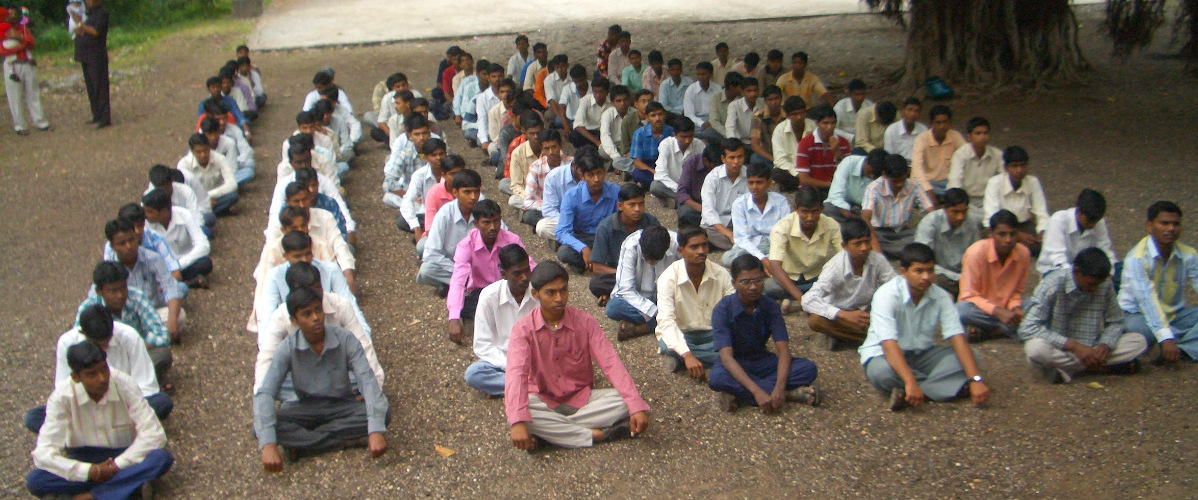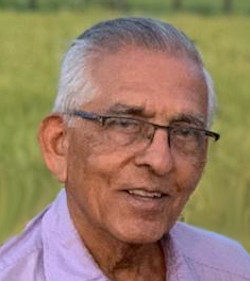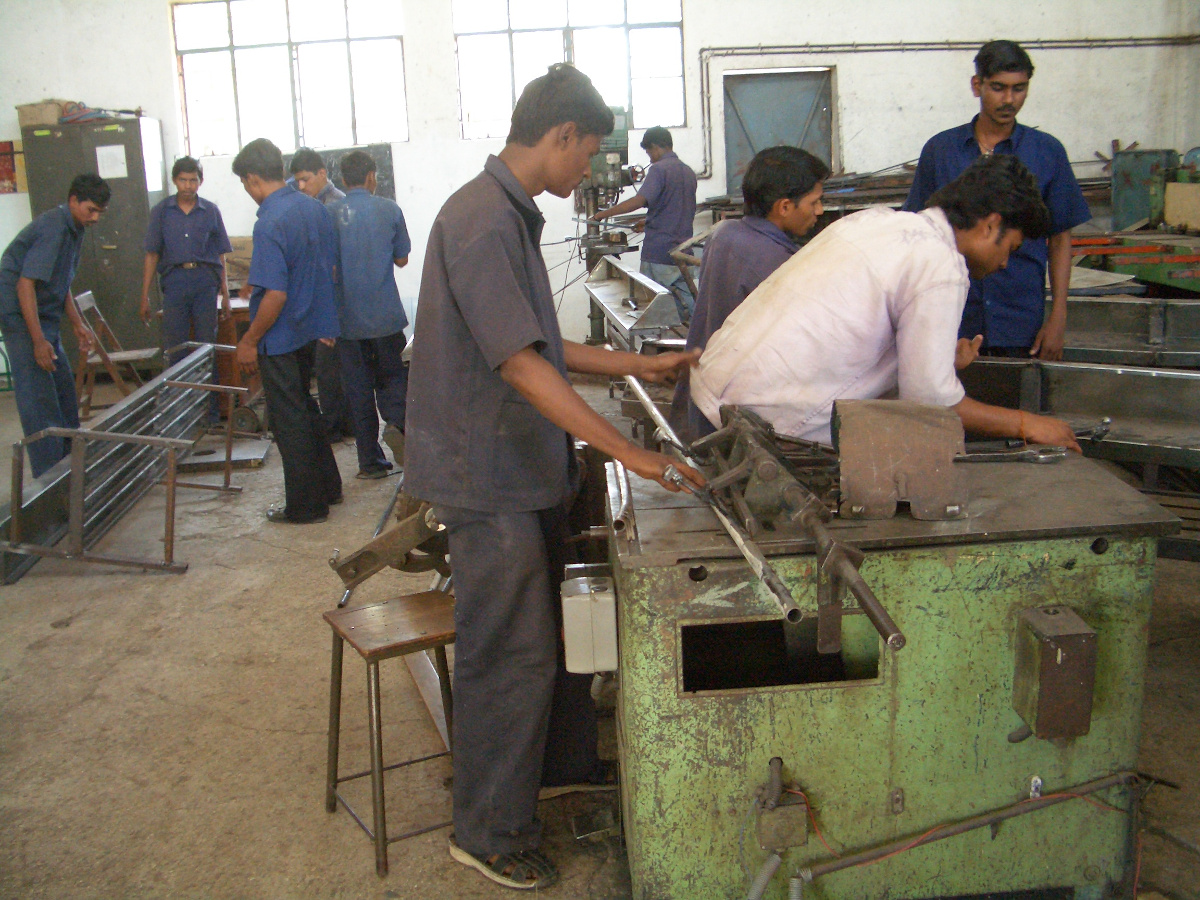 When I see much of the relief work being done for Covid-19, I notice that most of what is reported is the giving out of food packets. I have told our team that our relief work will not have any handout aspect in it. The ones receiving aid must do something in return for the community.
When I see much of the relief work being done for Covid-19, I notice that most of what is reported is the giving out of food packets. I have told our team that our relief work will not have any handout aspect in it. The ones receiving aid must do something in return for the community.
This makes me think of all the missionaries with whom I have been so closely connected. What a blessing they have been in my life. They taught me how to live a simple life and focus on reaching out to those in need. These missionaries led by example. One of the most important lessons I learned from them was this: that we have to help the poor to be able to feed themselves through their lives, a valuable education, and technical skills so they can stand on their own feet in the future.
In 1984 I got my first transfer to the technical institute in Shrirampur. It was situated in the rural area of our state and most of the students were from our various mission stations. The majority of them were from poor families. Since that institute had only about 100 trainees then, of whom 27 were accommodated in our hostel, I was also given the responsibility of looking after the students in the hostel.
The students had to pay about $4 per month for training costs and about $8 per month for their food and stay in our hostel, where they would receive freshly prepared breakfast, lunch, and dinner. Many received some support by way of scholarships.
About a week after I came to the institute I felt that I needed to ask the boys whether they were satisfied with their meals and the quantity being served. They were happy but would have liked a little more. So I made them give me a list of the quantity they would like. When I gave the list to the cook she told me: “Brother, it is too much”. I told her the boys had asked for it, but then I also told the boys: “No wastage.”
A few days later, I noticed some food being wasted. I got the cook to reduce the quantity a bit but I also called the boys and gave a first warning. Even that quantity seemed to have been much as there was wastage again. Again, I reduced the quantity and gave a second warning to the boys. When it happened the third time I called the boys and told them that I had decided that we were going to return to the boys the money they were paying for their food. They would now have to go to the market themselves and purchase whatever they needed and cook their own food.
We got the cook employed with the Jesuit community.
“We do not know how to cook” they said. “Then learn to cook” was my response.
We did give them some financial support. There was no waste after that and the boys learned the value of food. Until today the boys in the institute cook their own food.
The second example has to do with the same boys.
Some months later it was winter and when it was really cold I put on my sweater when I went for Mass at 6:30. The boys of our hostel had also to attend. They were in the chapel without any sweaters. They were sitting in the chapel in front of me and I could make out that they were feeling the cold. It was the same experience the next day. That afternoon I happened to go to the mission station of Shevgaon and went to visit the Missionshelferinnen Sisters who had set up the Nityaseva Hospital there. I met the German Sister Caecilia and while having coffee with her, I happened to mention how bad I was feeling that none of my boys had sweaters, while I was the only one wearing one. “Just go to the next room,” she told me. “I just got a consignment of sweaters from Germany. Take what you need.”
So, I went to the next room and chose 27 sweaters for my 27 boys and returned to Shrirampur. The next morning, I called the boys and gave each of them a sweater. I was so happy to see them in the chapel the next day with their sweaters. The day after that they were again there with their sweaters. I was again very happy. But, on the third day, none of them were wearing their sweaters. I was surprised. The day after that they were again in the chapel without their sweaters. I was wondering what they had done with the sweaters that I had given them and so called all of them and asked them: “Why are you not wearing your sweaters?”
“How can we wear them Brother?” was their response.
“Just put it on like this,” I told them.
“No Brother, some other boys in the institute are teasing us and are calling these ‘Jai Christ sweaters,'” which is, “Jesus sweaters”. They wanted to tease the hostel boys and tell them they got the sweaters because they were Christians.
Well, I never insisted on the boys wearing the sweaters and they did not wear them for the two years they were with us even when it was very cold. I was proud of them.
These two examples have taught me this: The really poor are people of dignity; do not make beggars out of them.
We have to be there to help the very poor with food, clothes, a good education, and all they need to stand on their own feet with dignity.
I am now involved with a project helping small landholder farmers improve their harvest and the income from their fields. We are showing them a method which requires lesser inputs but gives a much better harvest. It does not mean less work.
They do not get the inputs for free. The self-help-groups created see to it that whatever is advanced to them is returned with a small interest which becomes income for the self-help-group.
They learn gradually that in order to get more, one needs to do more. Nothing comes for free.
We are giving them ideas and possibilities to improve their income. The method itself means lesser costs for inputs like seeds and water. Making the compost they need prevents them from spending money on fertilisers. The equipment needed is with their group for which they have to contribute for the running costs. A storeroom, which they manage, allows them to store their harvests and sell them later for a better price. A women’s group manages a marketing outlet where they can sell their rice at market price.
It is very important for us to know what a Native American chief said: “This land we have not inherited from our ancestors, we have borrowed it from our children.” Whatever we borrow we have to pay back with interest. Hence, the land we have in our hands today should be of a better quality than it was when we got it back from our parents.
In order to make this into a movement we are planning a project where we would like school principals to allow us to build a compost shed in their schools. Each child must bring some compostable material to put into it every day. If the school has some land which they could set aside for the System of Rice Intensification, our farmers can prepare it so the children can transplant some rice on that land. The harvest will go to the school. The children, seeing the results, will speak about it to their parents.
As an acknowledgement for this we plan to give the children the possibility of learning Cambodian dance for which they will need a part-time teacher and costumes.
There is much for us to learn and there is much we need to do.
We are truly grateful for all the support that we have been receiving from individuals and from our Mission Procurators. It is they who give us the strength and the means to take forward in a very true sense what Jesus said to his disciples: “You give them something to eat,” but we have to know that the really poor are people of dignity; we should not make them into beggars.
 Noel Oliver is a Jesuit brother from India. He has served in Cambodia for nine years from 1990-1992, 2003, 2004, and 2015 until the present, where he is currently Mission secretary. This piece is a slightly edited version of the speech Br Oliver delivered in a symposium organised by Bread for all People foundation of the Archbishop of Bamberg, Germany in September 2019.
Noel Oliver is a Jesuit brother from India. He has served in Cambodia for nine years from 1990-1992, 2003, 2004, and 2015 until the present, where he is currently Mission secretary. This piece is a slightly edited version of the speech Br Oliver delivered in a symposium organised by Bread for all People foundation of the Archbishop of Bamberg, Germany in September 2019.


